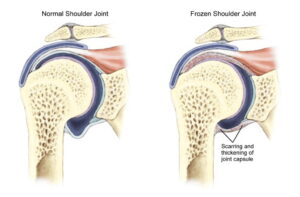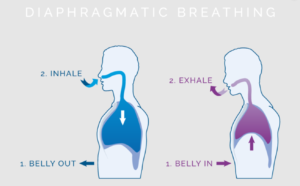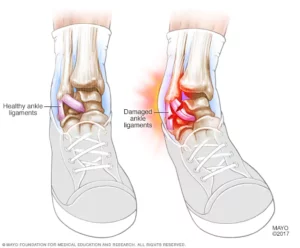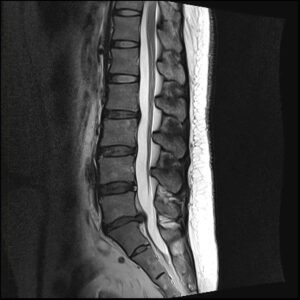If you have been injured or ill and are having pain or difficulty with functional mobility, you may benefit from the skilled services of a physical therapist (PT). Your therapist can assess your condition and devise a treatment strategy to help you return to your previous level of function.
But what is physical therapy, and how can a PT help you get back to your active lifestyle?
Physical therapy is an allied health profession that helps people recover function after they have been injured or ill. You may also benefit from therapy if you have a chronic health condition that limits normal mobility.
Physical therapy services are provided by physical therapists who are extensively trained to evaluate your condition. Your PT will work with you to provide treatments to help you recover if you are not moving well. Physical therapists work with other professionals-like physicians, nurses, or other rehab healthcare providers-to help you regain strength, range of motion, and functional mobility.
Physical Therapy Across the Lifespan
Physical therapists work with people of all ages. Some PTs assess and treat children and babies. Others specialize in working with older people. And some therapists work with middle-aged people who are experiencing difficulty with normal functional mobility. One of the great aspects of the physical therapy profession is that PTs can help people improve function and mobility across the lifespan.
Where is Physical Therapy Provided?
Physical therapists work in a variety of settings. These may include:
- Hospitals
- Outpatient clinics
- Schools
- Skilled nursing facilities
- In homes
If you are in the hospital, a PT may work with you to ensure that you are strong and mobile enough to return home. Children in schools may work with a physical therapist several times each week to ensure that they are able to enjoy the same mobility and access as their peers. And injured athletes may work with a PT in an outpatient clinic to fully recover after an injury.
What Conditions are Often Treated by Physical Therapists?
Physical therapists assess and treat people with a variety of conditions and diagnoses. These may include:
- Ligament sprains
- Muscle strains
- Back pain and sciatica
- Neurological conditions like Parkinson’s disease or multiple sclerosis
- Pelvic health and genitourinary issues
- Neck pain
- Balance problems
- Vertigo and vestibular issues
Any person with a condition that causes pain or limits normal functional mobility may benefit from the skilled services of a physical therapist.
And PTs also work with people to prevent problems. Some therapists work with office workers to ensure that their computer workstation is ergonomically designed. Others help athletes train properly to prevent injury while participating in sports.
Treatments Offered By Physical Therapists
There are various treatments that physical therapists use to help their patients recover and return to their previous level of function. Physical therapy treatments may include:
- Exercise
- Manual therapy and joint mobilizations
- Ultrasound
- Heat
- Ice
- Electrical stimulation
- Dry needling
- Massage
- Biofeedback
- Kinesiology taping
- Education about your condition
Some treatments are not for everyone, and your PT can determine if a specific treatment is right for your condition.
Keep in mind that an active treatment program is often the best form of care. Your therapist should provide you with exercises and strategies to independently manage your condition. You may also be prescribed a self-care home exercise program to augment your visits to the PT clinic. Passive treatments, like massage or ultrasound, may feel good, but engaging and an active care plan can help treat your current problem and possibly prevent future episodes of your condition.
If you are using an assistive device-like a cane, crutches, or a walker-after surgery, your PT can ensure that you are using it correctly and that it is property sized for you. As you progress in your rehab, your PT can make recommendations about which device to use and can help you regain normal walking ability.
Paying for PT Services
Physical therapists typically submit claims to your insurance company after services are provided. Your agreement with your insurance company often dictates what out-of-pocket expenses will be incurred as a result of your care in physical therapy.
Your insurance coverage may require that you pay a copayment for PT services. Other plans may have you pay a deductible for services. And some plans may cover PT in full, especially if you have been injured on the job or in an automobile accident.
It’s no secret that dealing with insurance companies can be a bit of a hassle. Your physical therapist typically is well versed in managing payment for services and should be able to give you an idea of what expenses may be incurred as a result of your care. Be sure to speak with the office staff at the PT clinic to understand your specific requirements when it comes to payment for PT.
If you do not have health insurance, your physical therapist should be able to provide you with a price for their services and will likely work with you to set up a payment plan to cover the cost of care.
Do You Need a Referral?
Many people who receive physical therapy services, especially in the outpatient clinic, are referred to PT by their physician. If you are injured or are having difficulty moving normally due to pain, weakness, or loss of motion, your physician will likely refer you to a trusted physical therapist.
Do you know that you are also able to access physical therapy services on your own without a referral? Direct access to physical therapy allows you to be evaluated and treated by a physical therapist without a referral or prescription. Some states, like North Carolina, have certain provisions in their direct access law, so be sure to speak with your local PT clinic to understand how to visit your PT via direct access.
Getting Started
Physical therapy is a healthcare profession that can help you recover fully after an injury or illness. Working with a physical therapist can help you regain strength, recover flexibility and range of motion, and restore normal pain free functional mobility.
If you live in the greater Asheville area and are in need of physical therapy, call Compass Physical Therapy at (828) 490-4499. You can also contact us via our website, and one of our professionals will contact you. And don’t forget to stay in touch with us via our Facebook page. Located in Arden, our clinic is easy to get to and our professional physical therapists are ready to help you regain full mobility and pain free function.







